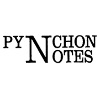Abstract
Many avid Pynchon readers probably identify with Herbert Stencil's, Oedipa Maas's, Tyrone Slothrop's, Prairie Wheeler's, and Mason and Dixon's cruel quests, wherein these characters search through ridiculous quantities of seemingly arbitrary details to find clues, Kute Korrespondences, that could (but probably won't) help them understand their world and, more important, their place in it. Likewise, with the cabalist's laser-like intensity fixed on the most random detail, Pynchophiles rifle thousands of pages of text, gleefully taking lessons from the above characters in "how to build your own conspiracy theory." Those who love such detail–the more the better–might find Cyrus Patell's Negative Liberties somewhat wanting as Pynchon criticism. To be sure, the study is well conceived, well researched and well executed. Patell contributes substantially to the mass of criticism that links Pynchon's works with real-world political/philosophical critique, joining the jeremiadic critical tradition which finds that the promise of American exceptionalism–or, in this case, American individualism–falls considerably short of its idealization in American myth and culture. (Patell's engagement with this tradition is not surprising, since Sacvan Bercovitch, his former professor, is cited as the primary inspiration for the work and is the person to whom the book is dedicated.) Yet, when it comes down to an examination of Pynchon's (and Morrison's) texts, Pynchophiles are (perhaps unreasonably) more demanding than the average cabalist.
How to Cite:
S. Baker, J., (2002) “Taking Liberties”, Pynchon Notes , 131-135. doi: https://doi.org/10.16995/pn.77
Downloads:
Download PDF

